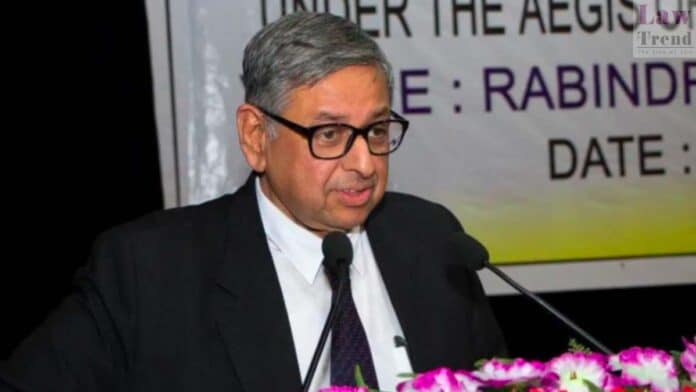Information Technology has made a huge difference in making the judicial system work for the common people, Supreme Court judge Justice Aniruddha Bose said on Thursday.
Justice Bose also highlighted the challenges faced by the legal community and said there is a need to use regional languages in the legal process. He emphasised that the alternative dispute resolution process will help reduce case pendency.
The apex court judge made the remarks during his lecture on “Justice Delivery System and the Role of Lawyers” at an event organised by the Supreme Court Bar Association.
He said, “Information Technology has made a huge difference in making the system work for common people. Today, we can have access to almost all the judgments, which are available to us and with the virtual system — a litigant from Lakshadweep or the Nicobar Islands can find out how his case is being conducted, which is a great thing.”
One of the challenges facing the legal community now is the use of regional languages as a medium in the legal process, he said.
“If you talk of access to justice, ultimately the mother language would have to replace any other language,” Justice Bose said.
He added the use of technology can help in using “mother language” in courts and that the lawyers and judges need to better equip themselves with technological advancements.
“The application of Artificial Intelligence can help prepare legal documents, which are accessible in the mother language,” the apex court judge said.
Justice Bose also emphasised the need to use the alternative dispute resolution process to reduce case pendency.
“We always think in terms of court cases whenever we talk of access to justice, or the functioning of the legal system, but there are a great deal of cases that can be resolved through artful negotiation. There we will have to attune ourselves a little more and finish the matter in 15 days, instead of 15 years,” he said.
Also Read
Highlighting the ease with which a common citizen can approach the courts for justice, Justice Bose said it speaks volumes about the success of the judicial system.
“Earlier the litigants were big landlords and then big corporates. Today, everyone, including the estranged homemaker, dismissed workman, and evicted agricultural tenant can come with ease to the Supreme Court and find a helping hand from lawyers,” he said.
Speaking about the pendency of cases, Justice Bose said what is often ignored is how many cases are also disposed of.
“I am not daunted by figures of pending litigation and, for me, the greater cause of worry would have been if there was no litigation. Of course, litigation has to be completed within a reasonable period but it (pendency figures) also reflects the faith of people in the system,” he said.




